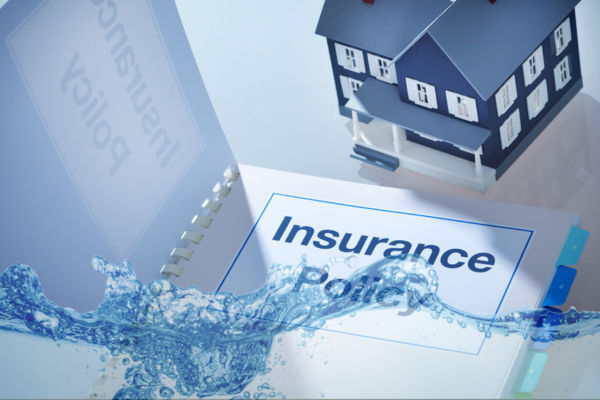What Type of Water Damage Does Homeowners Insurance Cover?
Water damage is one of the worst and most expensive problems most homeowners have; it is also among the top filed claims with any insurance company. From the sudden pipe bursts to the roof leaks resulting from storms, these incidents make many homeowners ask themselves or others, what type of water damage is covered by homeowners insurance
First, it is important to understand the intricacies of water damage coverage because it can give the homeowner a better understanding of how to make smart decisions when it comes to protecting their home and filing claims. In this post, we describe what type of water damage homeowners insurance usually covers and help you understand your policy. By the end of this process, you will have a crystal clear picture of how insurance takes care of water damage and what steps need to be taken in case of disaster.
Understanding Water Damage and Homeowners Insurance
Water damage has been described as the destruction or impairment of property due to intrusion on the part of water. This might come from a set of sources that include, but are not limited to, plumbing failures, natural disasters, or malfunctioning appliances. The risk with water damage varies from minimal damage to property to structural issues and mold growth when it is not dealt with quickly.
In the case of homeowners insurance, it’s about protection against sudden and accidental damage to your home. Most standard home insurance policies do offer coverage for some forms of water damage, but the key is knowing which situations one can claim. So, does homeowners insurance cover water damage? The answer is yes—but only in specific situations.
For example, the water damage is sudden in nature, based on an incident such as a burst pipe or storm-damaged roof; then your insurance will most likely cover the repair costs. But most policies will not pay for progressive damage based on neglect or poor maintenance. That makes it quite important to go through your policy regularly to know exactly what is covered or not when water damage occurs.
By having a clear understanding of how homeowners insurance covers water damage, you can avoid unexpected costs and ensure your property is adequately protected.
What Type of Water Damage is Covered by Homeowners Insurance?
Water Damage Covered under Homeowners Insurance
Knowing what type of water damage the homeowners’ insurance usually covers will safe your house from unseen situations. Although there is some variation in the insurance policies, most standard plans cover sudden and accidental water damages. Some of the most common types of water damage generally covered under homeowners’ insurance policies are as follows.
Sudden and Accidental Water Damage is Covered By Homeowners Insurance
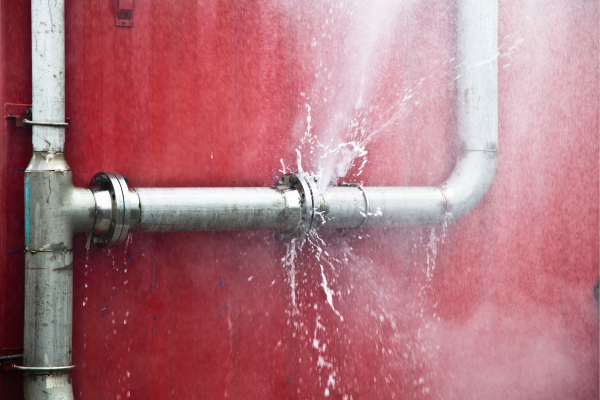
Generally speaking, homeowners insurance can help cover sudden and accidental water damage through such incidents as burst pipes, malfunctioning appliances, and other unforeseen leaks. This type of insurance coverage applies to instances wherein water damage occurs unexpectedly, thus resulting in immediate damage to the home. For example, if there is a water heater that suddenly bursts or if the hose of the washing machine suddenly breaks, then your insurance can cover all the repair and replacement costs.
Water Damage Due to Plumbing Issues is Covered By Homeowners Insurance
The number of claims on water damage due to plumbing issues seems to be more recurrent. In situations where a sudden pipe bursts, leading to freezing or wear and tear, insurance on a homeowner will often cover any resulting water damage, assuming the same has occurred suddenly rather than a result of neglect. Nevertheless, successive plumbing issues that are not dealt with could be denied so that regular upkeep is maintained.
Water Damage from HVAC Systems is Covered By Homeowners Insurance
Also, damage from HVAC malfunction generally tends to be covered under homeowners insurance. If your HVAC system is one day suddenly leaking or breaking and causing water damage, then your insurance should help you pay to repair. This also applies to heating and cooling systems that fail suddenly.
Water Damage from Roof Leaks – Due to Storms
Bad weather can cause roof damage and allow water to enter your home. If a storm causes shingles to blow off or a tree branch falls and damages your roof, any resulting water damage from roof leaks is usually covered. Homeowners insurance can help protect against the cost of repairing both the roof and the interior water damage from such sudden events.
Water Damage from Ice Dams is Covered By Homeowners Insurance
In cold climates, the formation of ice dams around roof edges can block the path through which melting snow would flow off; this could make the water seep into a home. Fortunately, many homeowners’ insurance covers damages caused by ice dams, due to the fact that it is considered a sudden and accidental event. This helps replace both the roof and interior damages the water causes.
Rainstorm Damage or Wind-Driven Rain is Covered By Homeowners Insurance
Water damage from a rainstorm is generally covered if rain comes in through the roof or walls after your home’s roof or siding has been damaged by heavy rain or wind. If rain seeps in through compromised walls or comes in through a damaged roof, most policies cover the resulting water damage.
Accidental Overflow is Covered By Homeowners Insurance
Accidents will happen, and when there is an overflow from a bathtub, toilet, sink, or washing machine, then homeowners insurance may cover any water damage that results. In many aspects here, the overflow must be accidental in nature and not based on homeowner negligence. This would also provide coverage for damages to your floors, walls, and personal property.
Vandalism is Covered By Homeowners Insurance
Homeowners insurance will cover the damage if your home has been vandalized and water damage results. For example, if a person intentionally damages your plumbing system and further causes leaks or flooding, the insurance policy will cover the repair cost and cleaning. Vandalism coverage means one need not bear the full cost even in those cases when water damage is a deliberate act.
Homeowners who want to protect their home should know what kind of water damage their homeowners insurance covers. Although policies vary, the types of damage covered are generally related to sudden, accidental events that are beyond the homeowner’s control.
What Kind of Water Damage Isn’t Covered Under Homeowners Insurance?
Excluded from Homeowners Insurance
While homeowners insurance covers a number of water damage types, there are scenarios that are excluded under the standard policies. It’s important for homeowners to understand what types of water damage are not covered by homeowners insurance to avoid unexpected costs.
Gradual Damage
Maintenance damage involves slow leaks or wear and tear, and this type of damage is usually excluded under homeowners insurance. For example, if water is leaking somewhere in your home over a period of time because of lack of maintenance and causes damage, then the insurance will not pay for it. If pipes or an appliance leak slowly and causes damage not dealt with in a very timely fashion, then insurance carriers generally view it as negligence and won’t pay to repair such items. Homeowners are expected to maintain their home regularly to avoid such types of situations.
Flood Damage
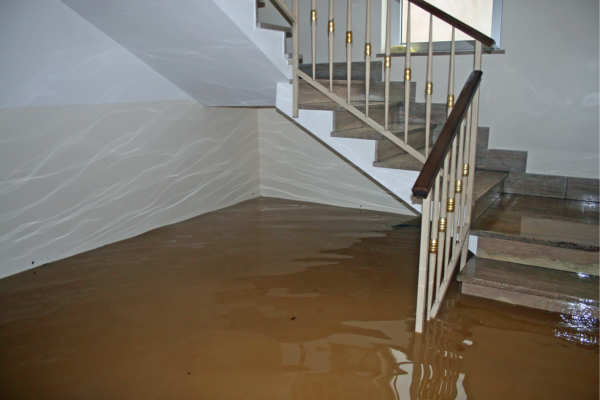
One of the biggest exclusions in a standard homeowners insurance policy is damage due to flooding. When the water rises from the river, heavy rainfall, or storm surge, it is usually not covered. You will, therefore, be expected to get a separate policy on flood insurance to cover your home from intruding water because of flooding. You will want to consider doing this if you are one of those people who live in flood-prone areas.
Sewer or Drain Backup
Back-up of sewer or drain water can cause significant damage to a home; however, this typically is excluded under a standard homeowner’s insurance policy. If the water from a sewer line or drain backs up and floods your home, this is a covered loss. In many instances, sewer and drain backup coverage may be available individually through a buy-back or endorsement from most carriers.
Water Damage from Neglect
Insurance carriers place an obligation on homeowners to maintain their property in a state of good condition. Due to this, water damage caused by a non-malicious act-negligence-such as failing to repair a known plumbing problem or a leak in the roof-is excluded under the homeowners insurance policy. If a problem is not addressed and water damage arises, associated costs will likely be billed to the homeowner. Regular inspections and prompt repairs are crucial to avoid this exclusion.
Water Seepage
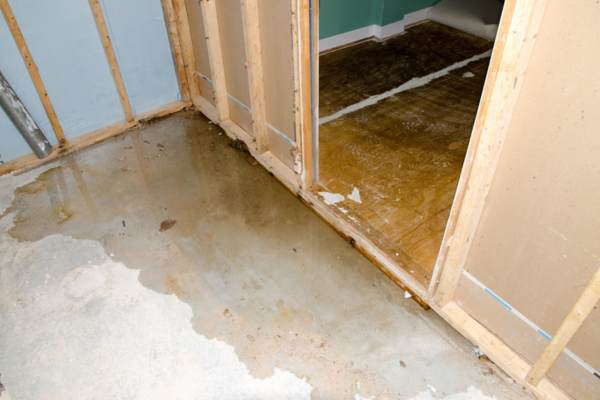
Seepage, which is a gradual seepage of water through foundations, walls, or floors, is also one type of water damage that is generally not covered under the home owner’s insurance policy. It may be due to poorly designed or defective drainage system around the house or accumulation of ground water around the home. Seepage is considered a maintenance issue, and because it is not sudden or accidental, most insurance policies exclude coverage for this type of water damage.
Mold, Fungus, or Rot
Since mold, fungus or rot frequently results from long-term exposure to water, most homeowners insurance does not pay for mold damage unless the homeowner has purchased specific mold coverage. Repairs or remediation probably won’t be covered if mold grows out of a lack of maintenance or slow leak. Some policies have mold endorsements that may be added for additional protection.
Water Damage from a Sump Pump Failure
If your sump pump fails and floods your basement, the resulting water damage is usually not covered under a standard homeowners insurance policy. The damage would be caused by sump pump failure, which is an exclusion unless the homeowner has bought a separate endorsement for that specific problem.
Foundation Leaks
Settlement, cracks and defective foundation causing leaks are also usually excluded from the homeowners’ insurance cover. If water damage is brought about by structural problems with the house foundation such as water coming in through foundation cracks among others, it is a maintenance or a construction problem and hence is not covered under insurance. The only way to avoid such water damages is one having the foundation repaired as well as taking good care of drainage around the house.
Water Damage from Earthquakes
If an earthquake causes rupture to your pipes, resulting in water damage, it will not be covered under your standard homeowners insurance. Generally, earthquake-induced water damage is excluded unless earthquake insurance is purchased by the homeowner. Such a policy will replace any water damage and structural issues caused by seismic activity.
Not knowing what kind of water damage is excluded under home insurance sends many people into some very costly surprises. Most common exclusions are gradual leaks, flood damage, and water damage related to neglect, meaning the homeowner should be proactive in maintaining the property or getting additional coverage where needed. Knowing the limits of your policy will help understand how to ensure your home is fully protected from water damage.
What Type of Water Damage is Covered by Homeowners Insurance? Adding Endorsements and Add-ons
Basic homeowners insurance does cover some types of water damage, but there are many limits in such coverage. Homeowners can, however, increase their coverage by adding endorsements or riders onto their policy. In this case, optional add-ons have been provided for additional protection against water damage events that are usually not covered by standard homeowners insurance.
One of the most common riders covers water backup, resulting from sewer or drain backups. Because these situations generally are not covered under regular policies, the addition of this coverage ensures that any and all damage resulting from sewer backups or sump pump failures is covered. This is quite relevant, particularly for homeowners whose property might have an older plumbing system or whose property tends to flood from the drains.
Another worth endorsement is flood insurance, which covers the damage that might arise due to floodwater resulting from natural occurrences such as heavy rain, storm surges, or overflows from any river. No policy will provide coverage for flood damage under a standard policy, and therefore buying flood insurance endorsements will be very important for a house that may lie in those areas that are known to experience floods. These can save homeowners from incurring significant financial losses in case of a flood.
How to Understand and Utilize Insurance Endorsements:
There is broader coverage when there is water damage if one understands and uses insurance endorsements. It is always advisable to talk to the insurance provider to understand these add-on options that are available and the costs and benefits accruing to each.
How to File a Water Damage Insurance Claim
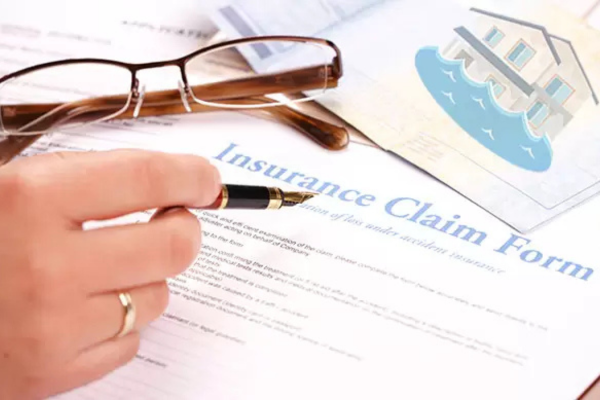
Filing an insurance claim for water damage might appear like an overwhelming venture, but proper steps carried out reduce the burden and further improve your chances of a successful claim. Follow this guide through the steps in the water damage insurance claim process.
Document the Immediate Damage
Take clear photos and videos of all areas of water damage as soon as possible after the damage has occurred. This will provide the evidence one needs for filing a claim. Be sure to document any water damage to the walls, floors, and ceilings, along with any damage to personal property.
Mitigate Further Damage
By the time the water damage sets in, its your duty as the house owner to prevent further damage from setting in. This may mean turning off the source of the water, removing excess water or covering broken windows or roof leaks with tarpaulins. Failure to take any of these steps may affect your claim.
Contact Your Insurance Company
Inform your insurance company right away. Most have an entire water damage insurance claim process that requires your documentation and a filing of an initial report. Be prepared to tell about the damage, including when the damage occurred and what steps you have taken to prevent further damage.
Cooperate with the Adjuster
When this is done, your insurance company will send an adjuster to inspect the damage. Here, you must give them all the necessary information you have on the damage which include receipts on what was damaged, estimates of repair work, and photos. The determination of the amount to be paid as damage requires the adjuster’s report, so it is very essential.
Keep Track of Repairs
If you start repairs before the insurance company has finished processing your claim, be certain to document all expenses. Keep receipts and invoices for materials, labor and temporary housing, if necessary, with which you can file along with your claim so that you receive full compensation.
What Type of Water Damage is Covered by Homeowners Insurance? Common Claim Issues to Avoid
The most common problems one encounters with claims, as a homeowner, are based upon denials of lack of maintenance. Be sure that your documentation proves the damage was sudden and accidental. Also, do not delay the process. Most insurance companies have very strict deadlines for filing water damage claims.
These steps, in addition to keeping good records, will go a long way toward ensuring that your water damage claim is successful. Knowing how the process of a water damage insurance claim works and how to avoid the common mistakes will go a long way toward ensuring that the compensation you need to repair your home and get back on your feet is provided.
Tips for Preventing Water Damage in Your Home
Prevention will not only save your home but also the headache that comes along with an insurance claim for water damage. Regular maintenance and being proactive on one’s part goes a long way in reducing the chances of any water-related disaster. Here are some key tips on preventing water damages to help safeguard your property:
Regular Plumbing Inspection
Leaks around the pipes and faucets are some of the most common causes of water damage. Regularly inspect your plumbing system for any evidences of wear, corrosion, and mineral deposit build-up, look for any leaks. Deal with small issues before they become major issues in water damage later on.
Roof and Gutter Maintenance
Your roof is your home’s first line of defense against water. Regularly inspect your roof for missing or damaged shingles, and make sure your gutters are clear and free of debris. Proper drainage prevents water from collecting on the roof and seeping into your home.
Install a Sump Pump with Backup Power
Sump Pump and Basement
If you have a basement, the installation of a sump pump can help protect your residence against flooding. Make sure your sump pump is working and that you have a backup source of power in case a storm knocks out the power.
Check Your HVAC System
The improper maintenance of an HVAC system can cause the system to leak and thus create damage from water. Have yearly HVAC maintenance and make sure that your system is working properly and the condensation lines are unclogged.
Monitor Your Appliances
Have regular leakage checks around household appliances, including washing machines, dishwashers, and water heaters. Replace old hoses if necessary, and make the connections secure in order to avoid any water damage from appliance failures.
By following these home maintenance tips to prevent water damage, you will minimize the potential for costly repairs and save your home from unexpected water damages.
Commonly Asked Questions About Water Damage Coverage
More often than not, many homeowners question what type of water damage homeowners insurance covers. The following are answers to a few questions that might help clear many common misunderstandings about the concerns at hand:
Does the insurance pay for mold emanating from water damage?
Mold caused by sudden and accidental water damage may be covered; however, mold caused by continuous leaks or neglect normally is excluded. Some policies may require an additional endorsement to include mold coverage.
Does water damage from the washing machine get covered under the insurance?
Yes, it does. The water damage from the washing machine is covered if the incident was sudden and accidental. Suppose there is a bursting of the hose due to some reason or another.
Can homeowners’ insurance pay for water damage originating from a leaky roof?
In the case of a leaking roof, water damage is generally covered if the leak was the result of a sudden event; this may be considered an act of God, like a storm. If, however, the damage is due to long-term neglect, then the insurance probably doesn’t cover it.
Knowing your policy can help you understand what areas to improve to be better protected from unforeseen expenses.
Education on What Type of Water Damage is Covered by Homeowners Insurance is Key
In conclusion, knowing what type of water damage is covered by homeowners insurance is essential for protecting your home and avoiding costly repairs. Most insurance covers sudden and accidental water damage; however, there are specific exclusions like flood damage and gradual issues that need additional coverage. To stay prepared, regularly review your policy, consider add-ons where needed, and reach out to professionals like Tri-State Ready Restoration for expert water damage restoration and support with your insurance claims.

